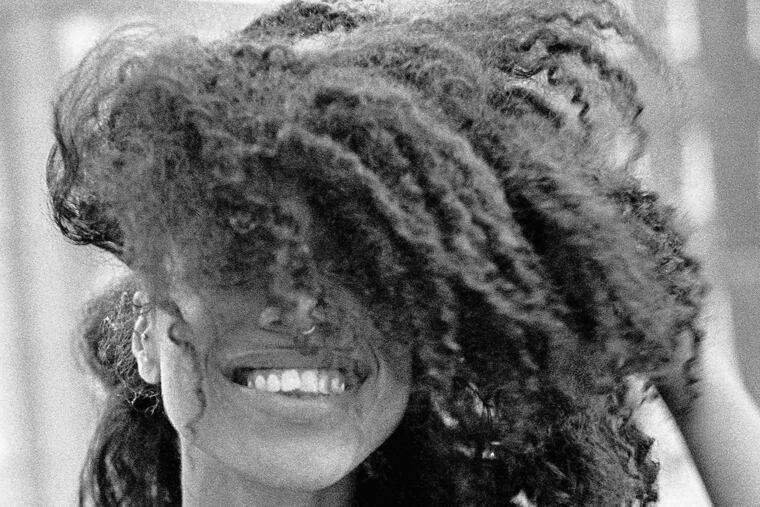Album reviews: Juice WRLD’s first posthumous project is his best
What you should, or should not, be listening to.

Lianne La Havas
Lianne La Havas
(Nonesuch *** 1/2)
This is London guitarist and songwriter Lianne La Havas’ third album — and first since 2015 — but it’s her first that’s self-titled.
She’s already done a fine job making a name for herself in the soul-folk-pop realm, so much so on the strength of her 2012 Is Your Love Big Enough? debut that Prince became a fan and collaborator, paying a visit to her London home in 2014. (She made tea.)
But it makes sense that Lianne La Havas is eponymous because it’s the 30-year-old singer’s most confident album, and the first that she asserted complete control over, using her own road band.
As confessional songwriters go, La Havas has always been nonlinear, with a circular style that draws the listener in with a taste for syncopation that hints at Joni Mitchell, and Brazilian tropicalia as well as old-school rhythm and blues.
Here, she crafts a song cycle about heartache, with a narrative arc that begins with fresh possibilities and blossoms with joy before initial infatuation fades and frustration and disappointment settles in. The promise of “Read My Mind” leads to the empathy of “Paper Thin,” but eventually give ways to the plea of “Please Don’t Make Me Cry.”
The story doubles back on itself, with the song cycle beginning and ending with two versions of a song which could have served as an album title: “Bittersweet.” That word aptly describes La Havas’ music, which sounds effortless as it soothes like a summer breeze, while simultaneously making its not-so-sunny emotional impact felt.
— Dan DeLuca
Juice WRLD
Legends Never Die
(Grade A/Interscope ***)
One of the spookiest things about Jarad Higgins’ gut-wrenching brand of emo-rap was how trapped this young man seemed to feel: More than a year before he died this past December, he had rapped the lines: “What’s the 27 Club? We ain’t making it past 21.”
Considering his song “All Girls Are the Same,” Higgins’ on-record frustrations were that of someone who still had a lot of life left to experience. So it’s no surprise that Juice WRLD’s first posthumous album is his best. An exceptional melodist who embraced a generous helping of Sting’s “Shape of My Heart” on “Lucid Dreams,” his greatest hit, he was granted access to experts as varied as Rick Rubin, Skrillex, and the unsettling Dr. Luke when he suddenly passed, and was maturing into a songwriter who understood his gifts.
Legends Never Die has no scores to settle with women, and the bluesy “Stay High” and “Can’t Die” set up “Man of the Year” with a big, what-could’ve-been pop-punk finish. Legends debuted at the top spot on Billboard’s 200 albums; here’s hoping it helps its many, many fans keep going.
— Dan Weiss
Courtney Marie Andrews
Old Flowers
(Fat Possum, *** 1/2)
Over the course of her previous six albums, Courtney Marie Andrews showcased her remarkable voice in settings both stark and busy. On Old Flowers, she’s found a perfect balance. Recorded with Big Thief drummer James Krivchenia and producer Andrew Sarlo plus multi-instrumentalist Matthew Davidson, Old Flowers is restrained and nuanced, guided by Andrews’ acoustic guitars and acoustic and electric pianos. The tone is contemplative, with an underlying tension that rarely releases, although a few tracks, such as the rolling “It Must Be Someone Else’s Fault,” have an open-road, wide-screen beauty.
Andrews wrote these songs in the wake of a nine-year relationship, but they’re less about a breakup than about the aftermath, about wanting the best for a person but not wanting to be with them anymore and knowing fault lies on both sides. “You can’t water old flowers,” Andrews sings in the title track, one of several songs that sound a bit like Joni Mitchell singing Neil Young’s Harvest.
Her voice is the star here. Without sounding retro, Andrews channels the drama of classic country balladeers like Skeeter Davis; with hints of Maria McKee’s power and Neko Case’s clarity. Her voice is pure, with a bit of a break in it and a wide range, showcased best, perhaps, on the piano ballads such as “Guilty” and prayerful, stunning “Ships in the Night.”
— Steve Klinge